|

Certificated parachute riggers represent a professional
cadre within the parachute community. According to
Title 14 of the Code of Federal Regulations (14 CFR)
part 65, subsection 65.129(f)(1), “No certificated parachute
rigger may exercise the privileges of his certificate
and type rating unless he understands the current
manufacturer’s instructions for the operation involved
and has performed duties under his certificate for at
least 90 days within the preceding 12 months.”
Manufacturers of main parachutes have packing techniques
that they have developed for their products.
Most of them follow established methods in common
use. Experience has shown that if the packing techniques
required for a specific main are too complex,
the market may not receive them favorably.
SPORT PARACHUTE MAIN PACKING TECHNIQUES
The most common packing method used today is the
Proper Ram-air Orientation (PRO) packing. Figures 4-1
thru 4-32 show this technique. There are several variations
to this technique designed for special purposes.
Free fall cameramen may require a slower opening to
reduce the opening shock. Canopy Relative Work
(CRW) parachutists may want faster sub-terminal openings.
The rigger should be able to provide guidance to
the parachutist for the type of opening required.
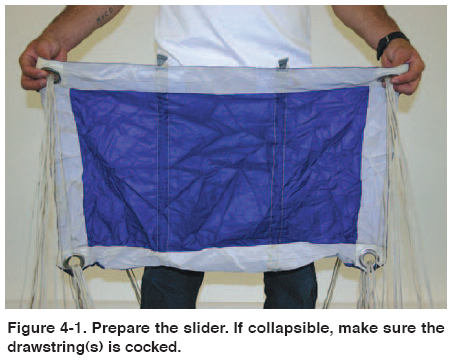 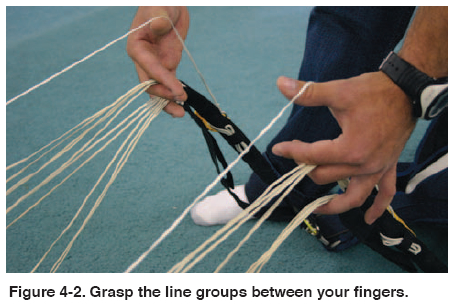
 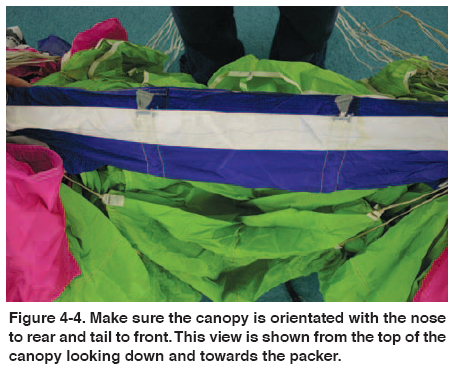
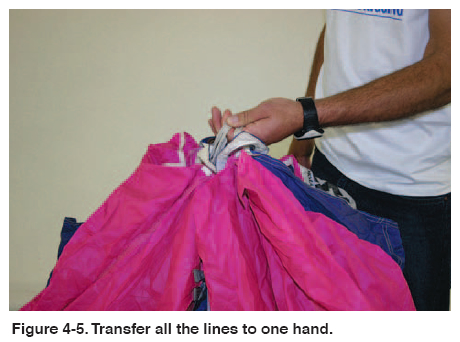 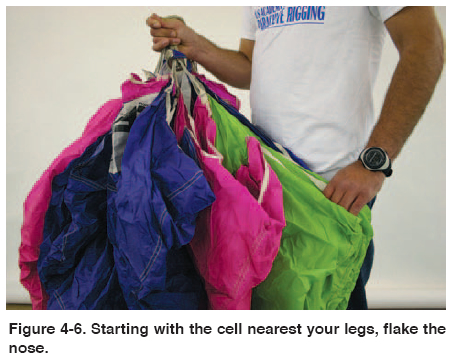
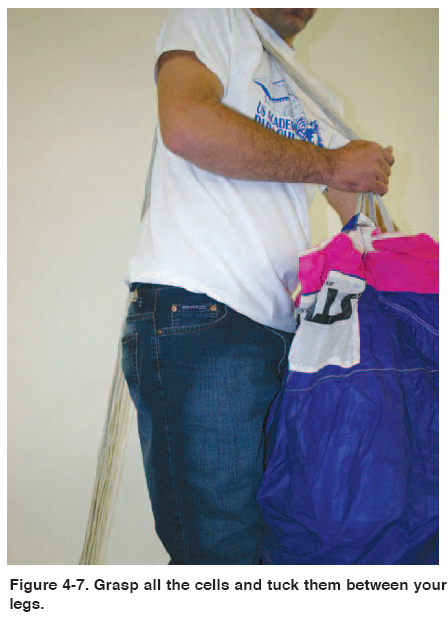 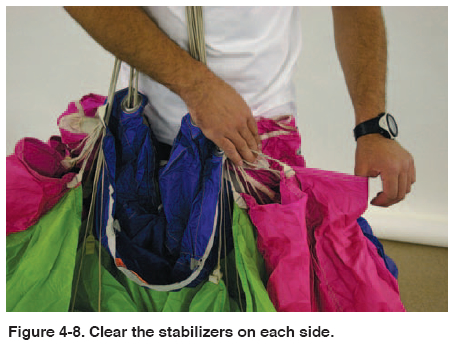
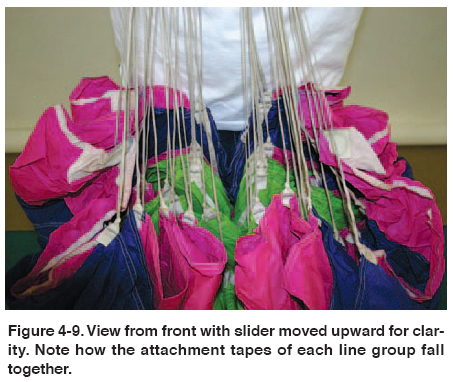 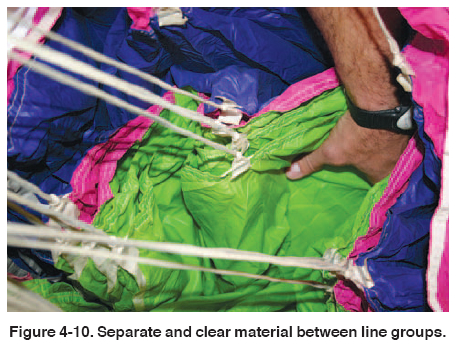
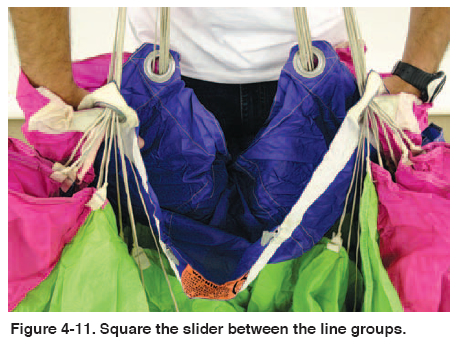 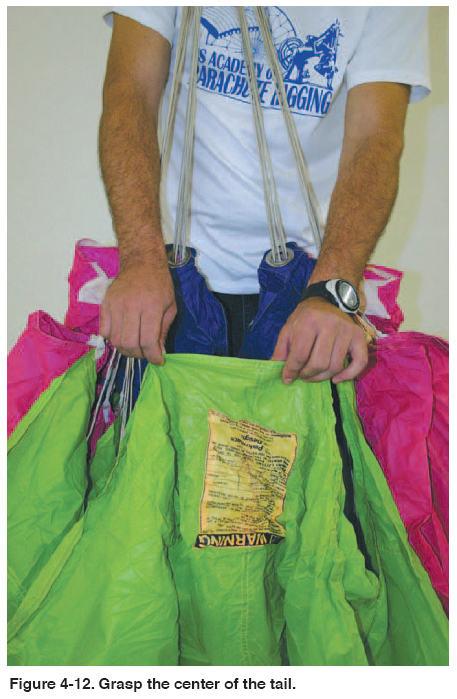
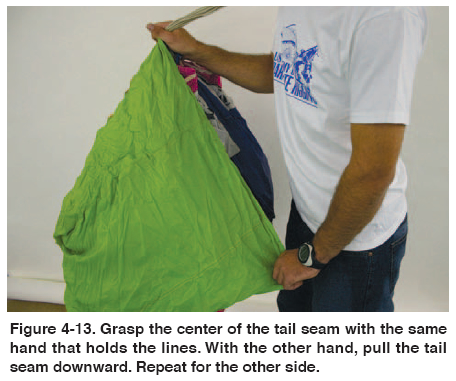 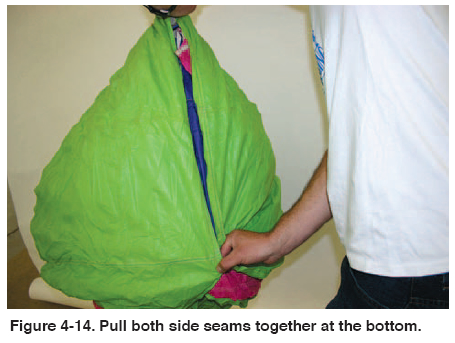
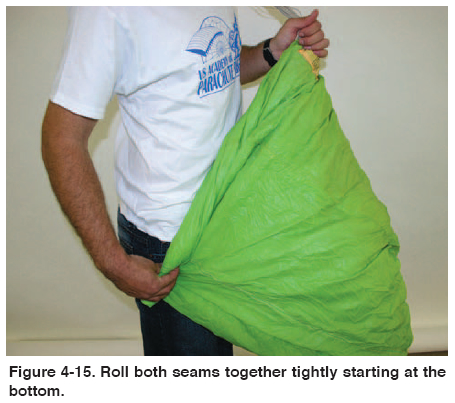 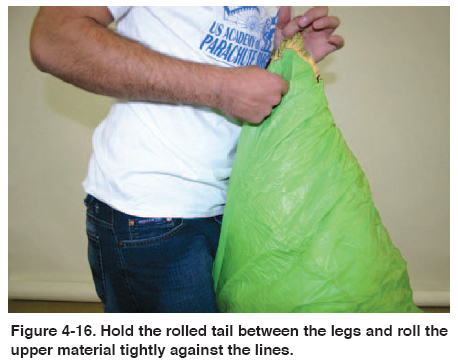
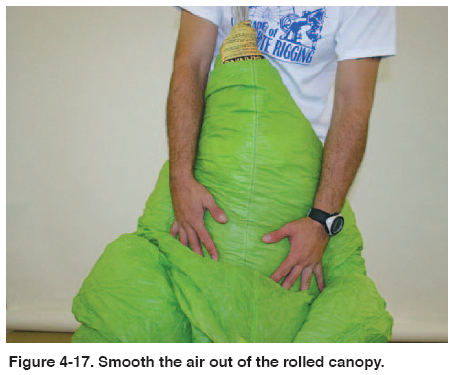 
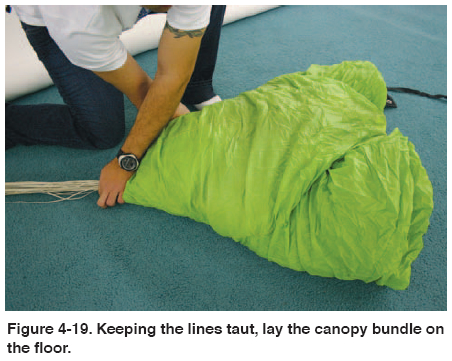 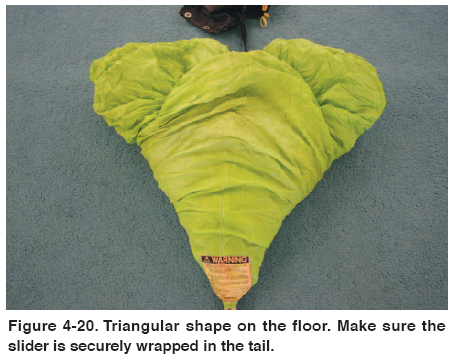
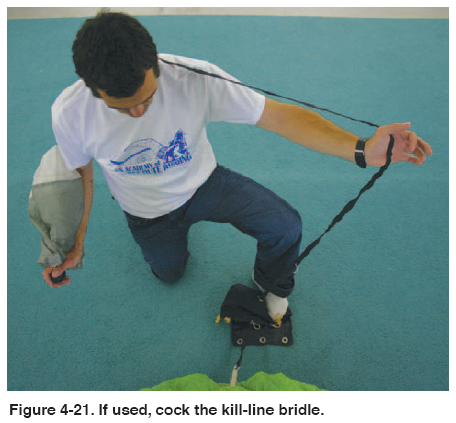 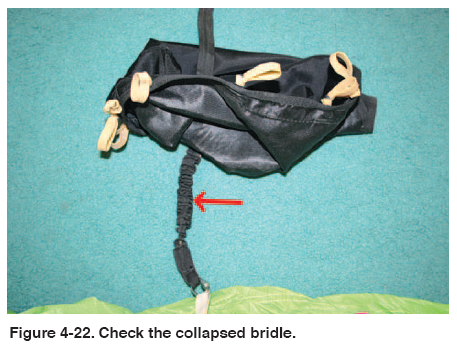
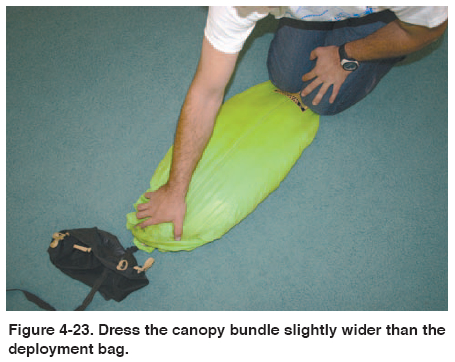 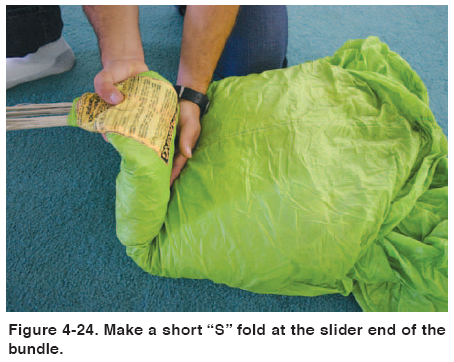
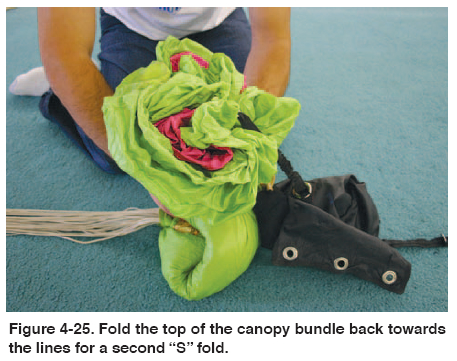 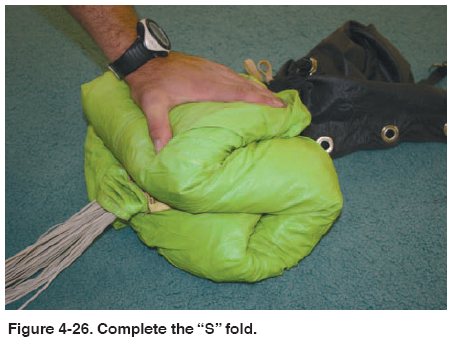
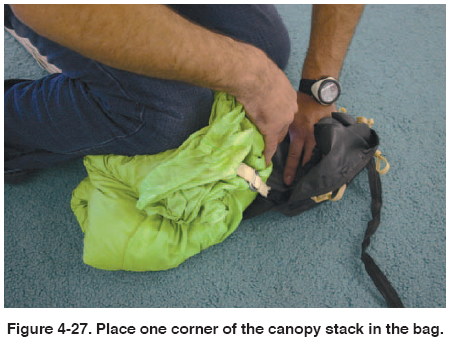 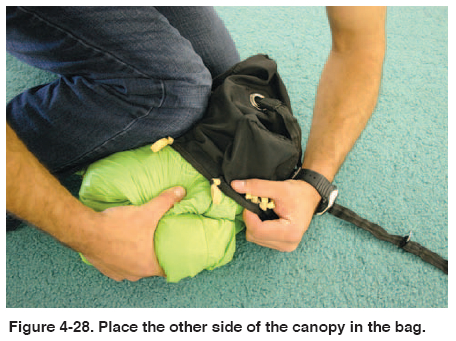
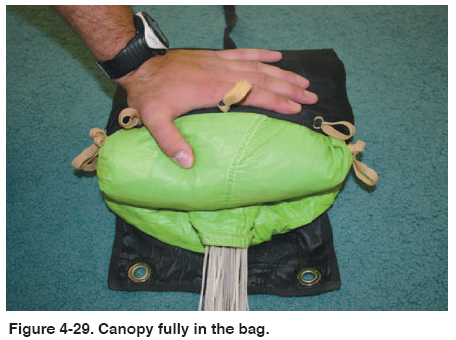 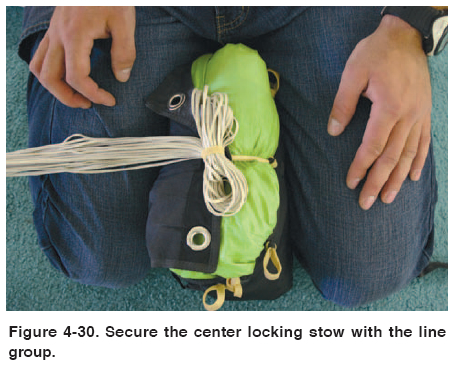
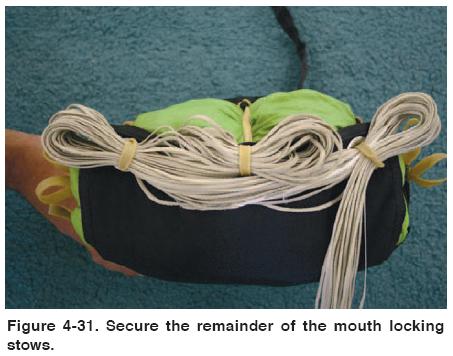 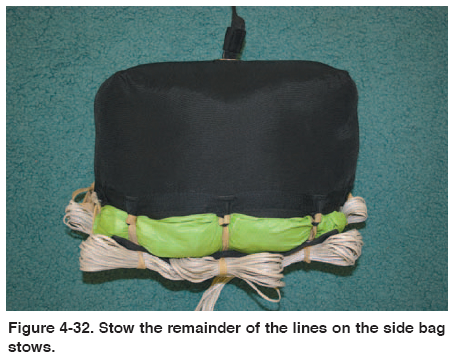
When packing reserves and emergency parachutes, the
rigger must adhere to the manufacturer’s instructions
and is not allowed to deviate from them. When packing
main parachutes, the manufacturer may specify a
certain packing method but then gives guidance and
leeway for alternative methods to use to vary the opening
according to the needs of the parachutist.
| 
